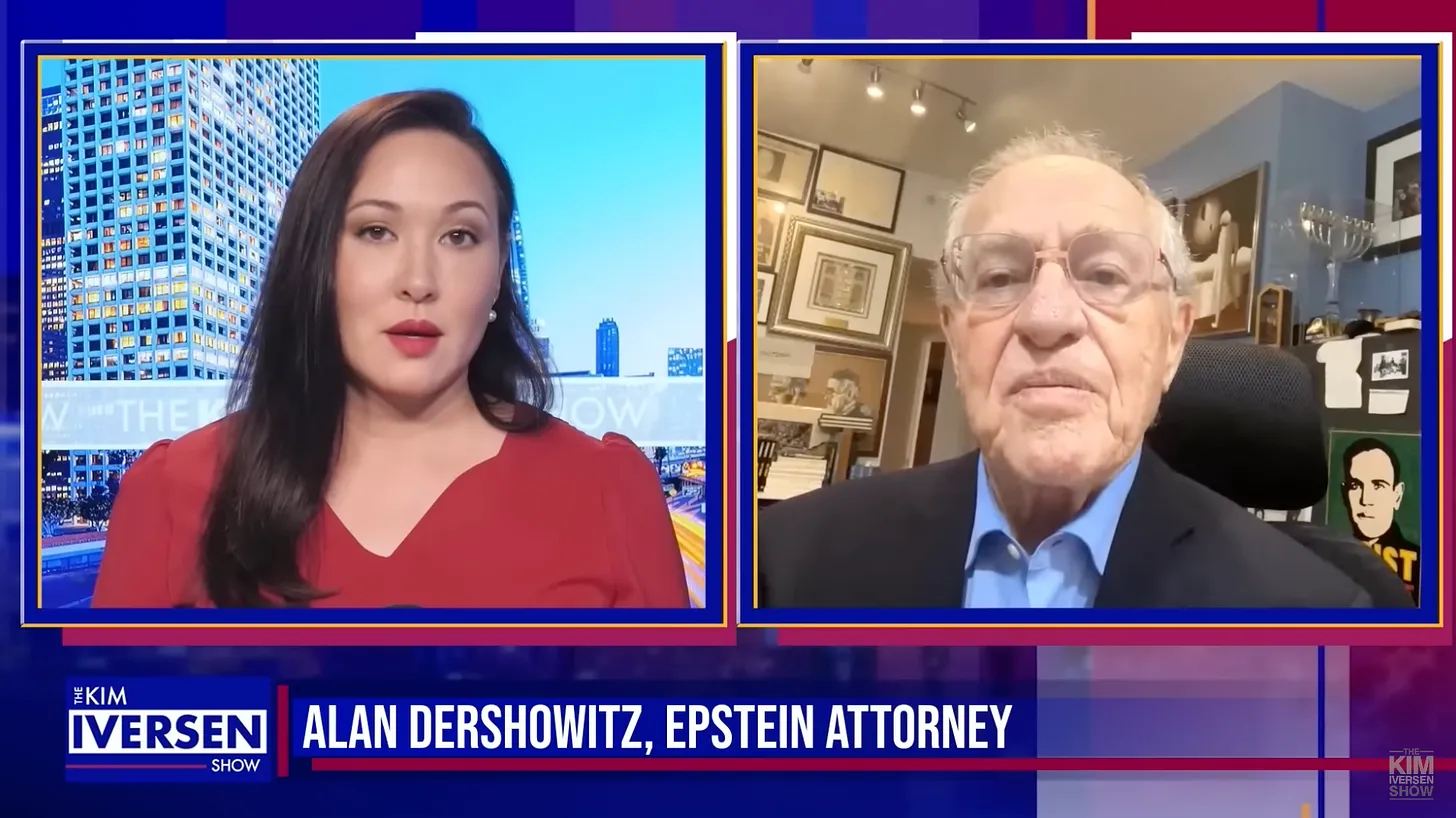by Arjun Walia, The Pulse:
 Most people think of money and agenda, and that’s part of the picture, but there’s one incredibly common factor most don’t consider: access. Let’s explore Kim Iverson’s Dershowitz interview.
Most people think of money and agenda, and that’s part of the picture, but there’s one incredibly common factor most don’t consider: access. Let’s explore Kim Iverson’s Dershowitz interview.
In personal development, one can’t change something about themselves until they are first made aware of the pattern or problem they are experiencing. Once they know, steps can be taken to adjust, better themselves, or grow beyond the problem.
TRUTH LIVES on at https://sgtreport.tv/
The same can be said for how our society functions. After all, we as individuals are a microcosm of our collective story.
In that sense, I am a strong believer that if we don’t have an understanding of how our world works, then we don’t stand a chance in making it a better place as we don’t know what problem we are solving.
The first step towards uncovering truth is being able to re-examine our positions and embrace uncertainty.
Propaganda Produces Narrative
In my previous piece on propaganda I talked about how governments distribute a “story” or “narrative” about current events to rally the public behind an idea. It’s through this propaganda that people believe something about how the world works, even if it’s not at all true.
Mainstream media is the mouthpiece that connects government to the people. It has incredible power in shaping public opinion, and governments and powerful people know this.
The is how the masses come to believe they live in a democracy, that government is doing their best to fight enemies. Or that government is keeping people safe through their authoritarian actions, and attempting to create wellness in society. Don’t question government or else you’re a conspiracy theorist.
This narrative is all told through mainstream media. Control mainstream media and you control the masses’ perception.
Controlling Mainstream Media
There are many ways in which mainstream media can be controlled. A common belief is that newsroom directors are constantly getting phone calls from government people telling them not to run certain stories.
This may be true for a small portion of MAJOR stories as we saw with the government program Project Mockingbird.
A 1991 a declassified document from the CIA archives shows the Central Intelligence Agency had a close relationship with mainstream media and academia.
The document states that the CIA task force “now has relationships with reporters from every major wire service, newspaper, news weekly, and television network in the nation,” and that “this has helped us turn some ‘intelligence failure’ stories into ‘intelligence success” stories,’ and has contributed to the accuracy of countless others.”
It admits the agency had “persuaded reporters to postpone, change, hold, or even scrap stories that could have adversely affected national security interests or jeopardized sources and methods.”
We learned through COVID that this sort of thing does still happen, especially with major stories. But for the most part this isn’t how media is controlled in my opinion.
One other common idea is that “all of the journalists at The New York Times or CBC know they are lying.” I don’t think this is true.
Most of these people fully believe in what they publish, and are more so regulated by a news culture and environment that is built around avoiding certain conclusions. They also tend to perform unbalanced investigation into certain subjects.
Part of how news culture is built, and what stops journalists from following their gut, is the fear of the loss of access.
What is Access?
Access is simple: a news outlet can gain access to certain individuals like politicians, powerful business people, or celebrities based on their reputation and knowledge that they won’t “cross the line” or surprise guests.
In this case “the line” is asking tough questions or holding people accountable. Cross the line, and word gets out that powerful people shouldn’t associate with those brands as readily.
Imagine during the Freedom Convoy if the CBC decided they were going to ask Justin Trudeau very tough questions about his abuse of power, lies, and hatred he was disseminating towards unvaccinated people.
You can bet that the CBC would be fearful Trudeau’s admin would give them less access to early stories, updates, interviews and so on if they don’t “play ball” with Trudeau.
If the CBC doesn’t play ball, they will be late on stories, their competition will get things first and the CBC would be playing catch up all the time. This is bad for business.
Access is directly tied to the profitability of many news organizations. Thus, it becomes a race to the bottom dynamic of kissing the ass of those in power and not upsetting them so you can compete amongst other news organizations to get access to stories and interviews first – or even at all.
A Prime Example
This concept is well demonstrated in a recent interview Kim Iverson conducted with Alan Dershowitz on her show. To note, Iverson’s program is independent, and not considered mainstream media.



